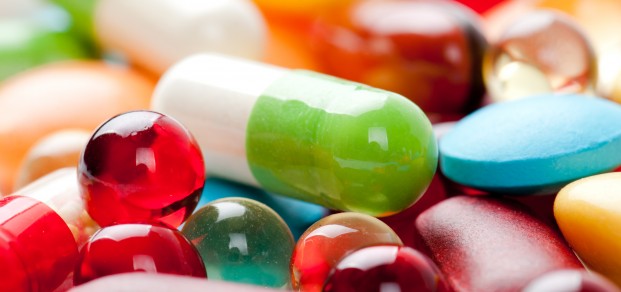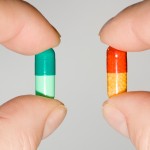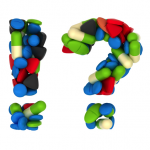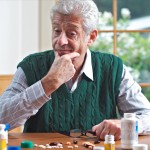Introduction
Antidepressants are medications used in the treatment of depression, but many can also be used in conditions such as anxiety disorders and obsessive compulsive disorder. Most antidepressants are taken orally.
What we already know
Antidepressants can be divided into six groups, based on their mechanism of action:
- Selective Serotonin Reuptake Inhibitors (SSRIs) e.g. Citalopram, Sertraline
- Serotonin-Noradrenaline Reuptake Inhibitors (SNRIs) e.g. Venlafaxine, Duloxetine
- Noradrenergic and Specific Serotonergic Antidepressants (NaSSAs) e.g. Mirtazapine
- Tricyclic Antidepressants (TCAs) e.g. Amitriptyline, Imipramine
- Monoamine Oxidase Inhibitors (MAO-Is) e.g. Phenelzine, Moclobemide
- Miscellaneous e.g. Bupropion, Trazodone, Reboxetine
Side effects depend on the mechanism of action and can vary from person to person.
NICE guidelines suggest use of antidepressants in moderate or severe cases of depression only. The risks of antidepressant medication use in mild depression outweigh the benefits, so other forms of therapy (e.g. CBT) are recommended in these cases.
Areas of uncertainty
- The exact mechanisms of action – we are yet to find out exactly why and how many of the antidepressants work (there are inconsistencies in the monoamine theory of depression)
- How to limit side effects associated with antidepressant use
- How many people experience withdrawal effects and how best to withdraw from antidepressants
- Using antidepressants in special groups – limited data exists for which antidepressants (if any) are best to use in pregnant women, children and the elderly
What’s in the pipeline
- Ketamine has been shown to have promising antidepressant effects, although further randomised placebo-controlled trials are needed (Coyle and Laws, 2015)
- Research is ongoing into the biological causes of depression and it is hoped that when this is better understood, therapy can be targeted towards the exact cause
- Further research is also being conducted into the long term effects of antidepressants
- Research aimed at developing more personalised treatment for depression is also underway
References
NICE guidelines CG90 (2009) ‘Depression in adults: The treatment and management of depression in adults’ [PDF]
Semple, D. and Smyth, R. (eds.) (2013) Oxford Handbook of Psychiatry. 3rd ed. Oxford: Oxford University Press. (Publisher)
Coyle, C. M. and Laws, K. R. (2015), ‘The use of ketamine as an antidepressant: a systematic review and meta-analysis.’ Hum. Psychopharmacol Clin Exp, doi: 10.1002/hup.2475 [Abstract]
Acknowledgement
Written by: Josephine Neale
Reviewed by: Helge Hasselmann
Last updated: Jun 2019
Review due: Jun 2020














